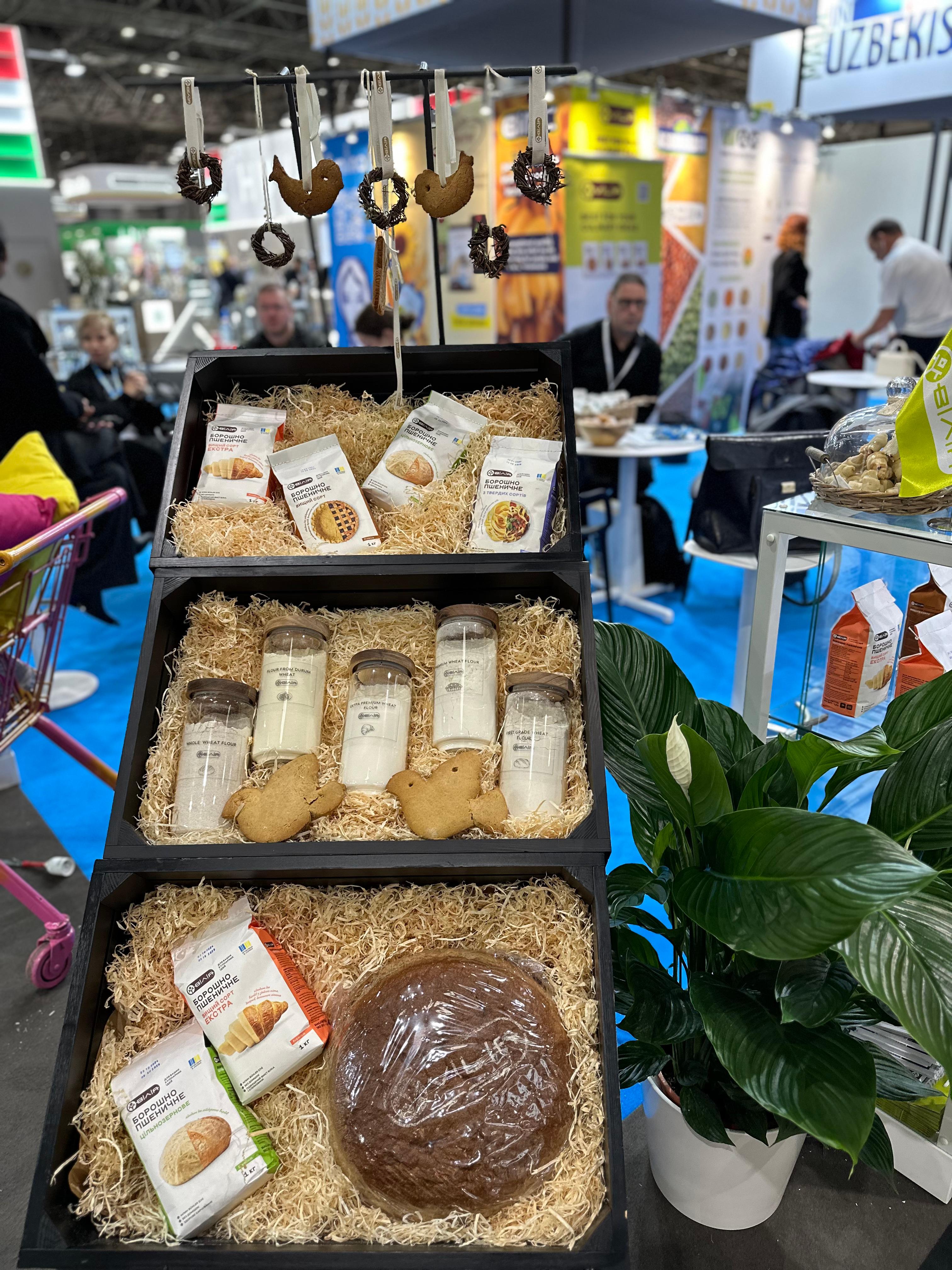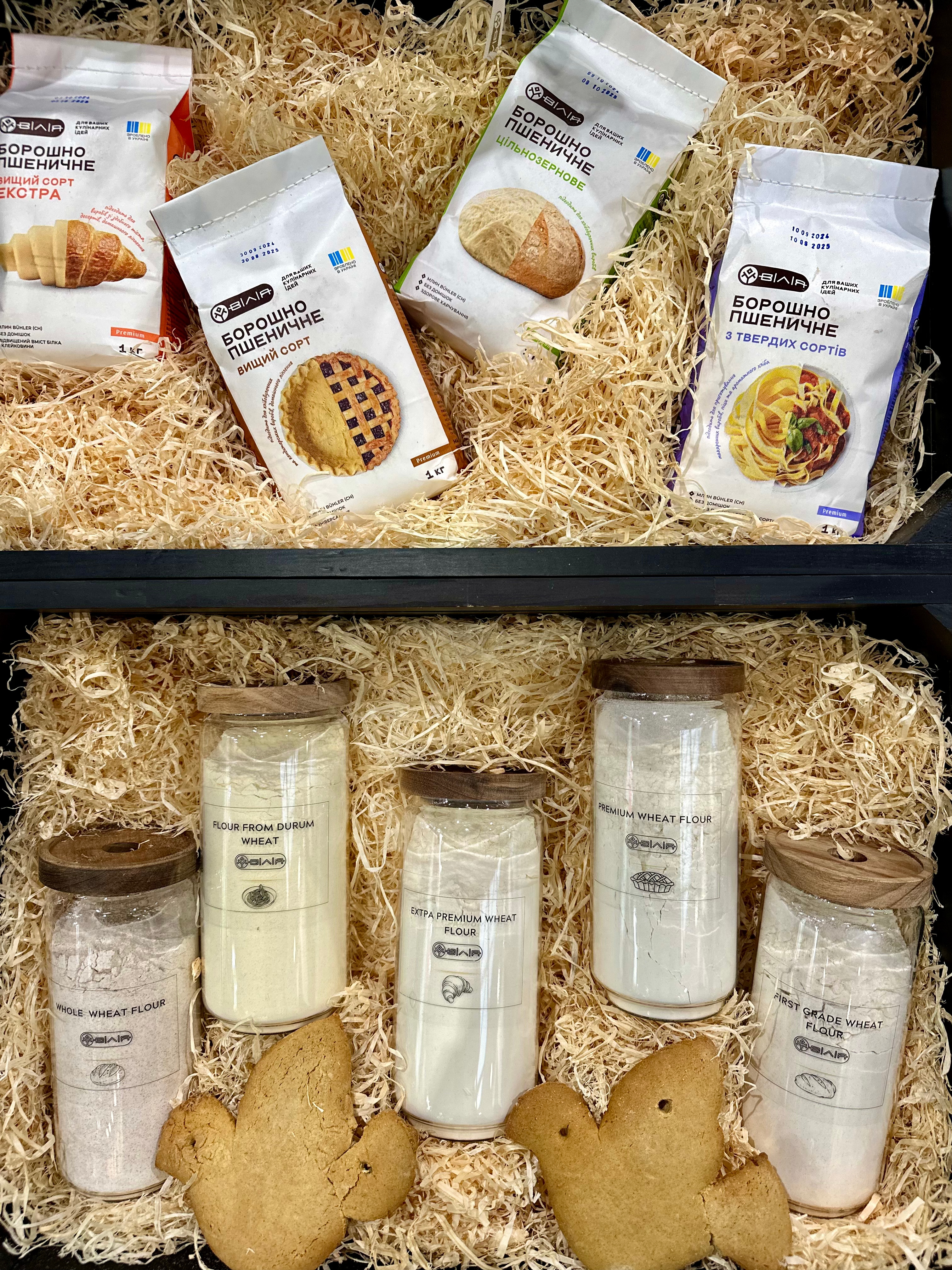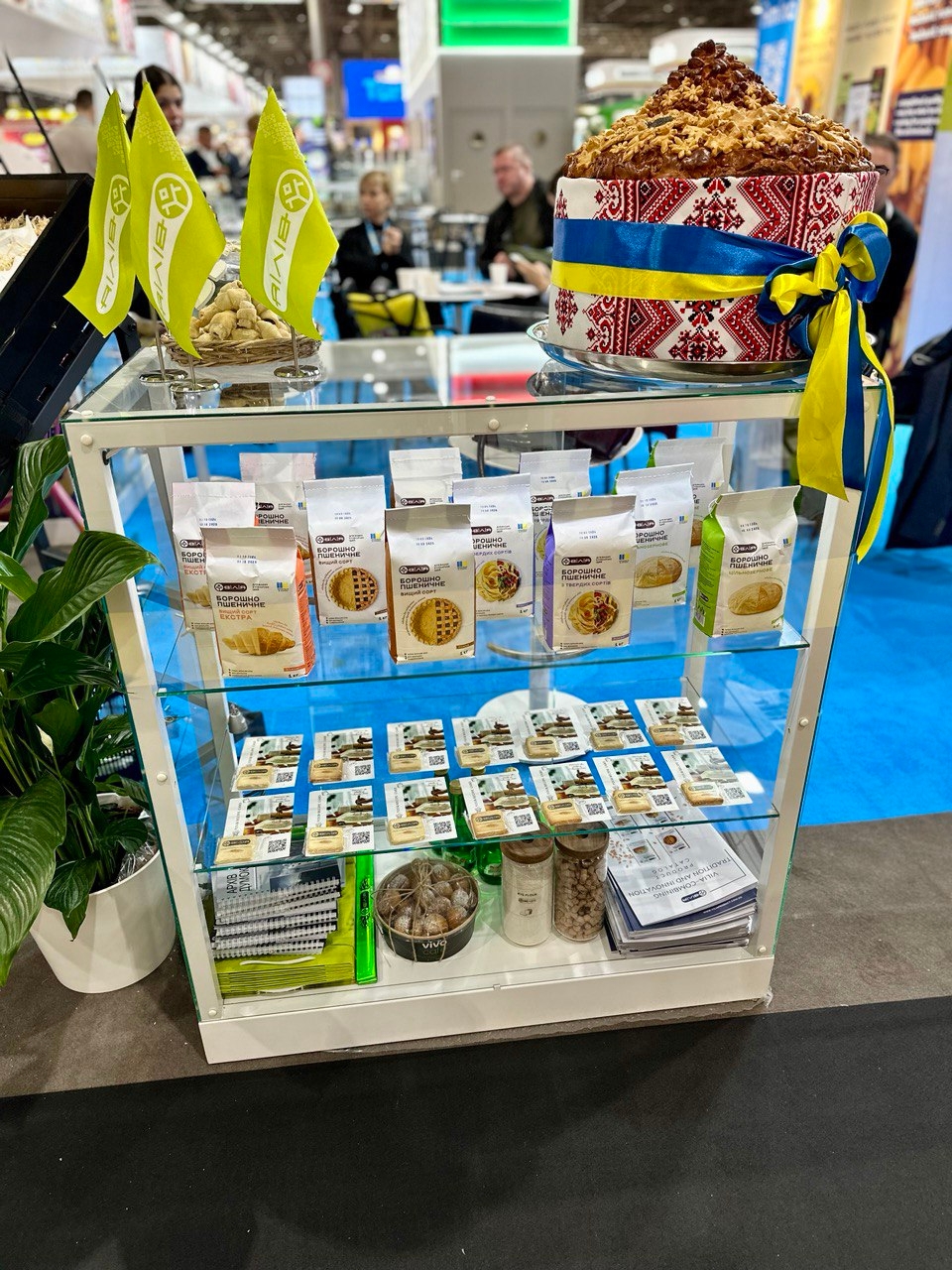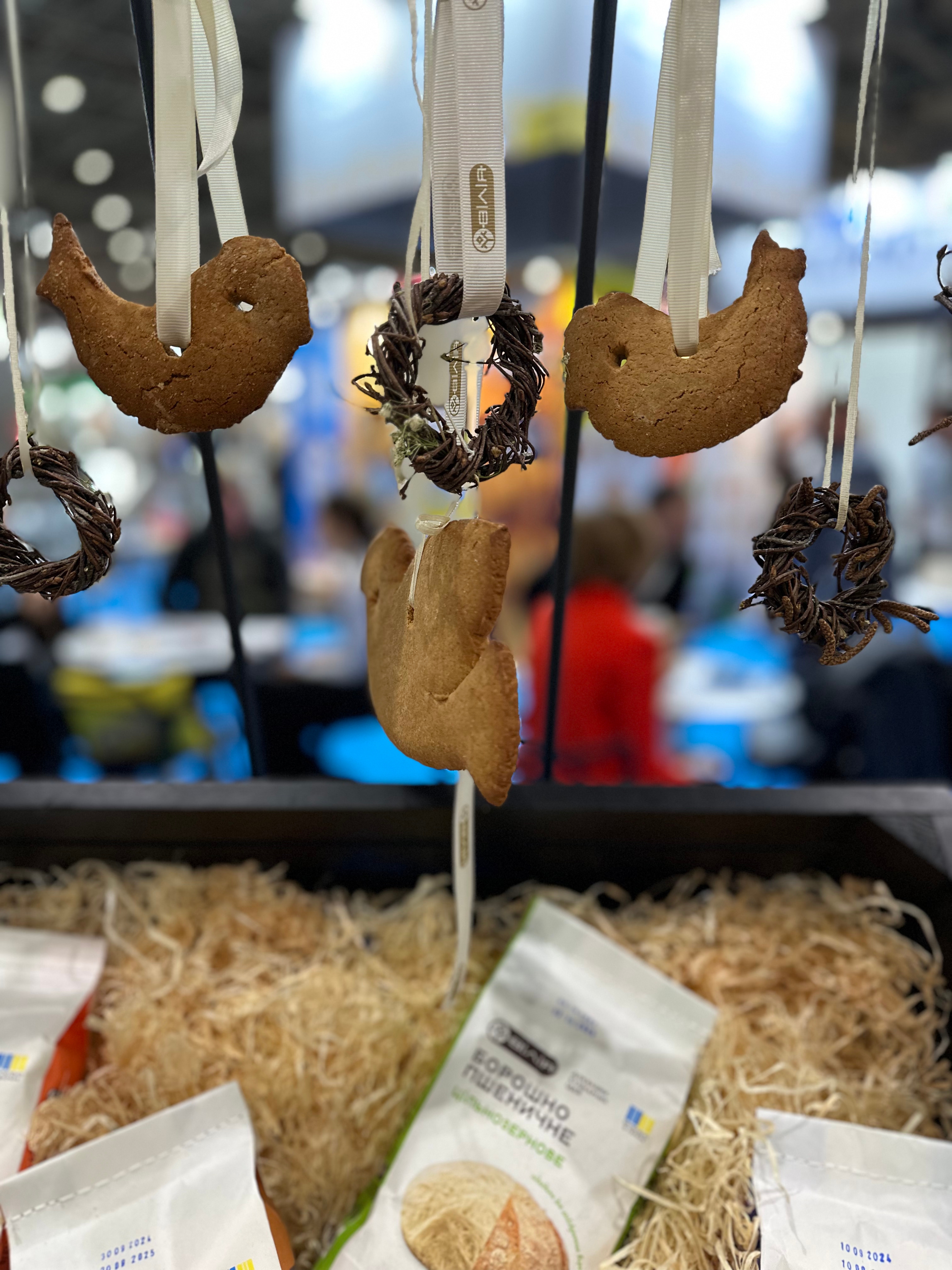VILIA is about advanced technologies and working towards Victory.

Last summer, leading Ukrainian media outlets covering the agricultural sector shared sensational news: a powerful new mill was launched in Volyn. This was an encouraging announcement. We ask Lyubov Kyrychuk, the director of the enterprise, how the company is operating now and whether it has reached its design capacity.
– Yes, I can proudly say that the "VILIA-PRODUCT" enterprise operates around the clock and has reached full capacity. To briefly remind your readers, the main construction of the mill, equipped with Swiss-made machinery, was carried out in 2022, and it was launched in July 2023. For us, this marked a new level: additional technical capabilities to process 120 to 150 tons of wheat per day, depending on the quality of the input grain and specific flour composition requirements.
This year, we installed a new separator for additional grain cleaning before it is fed into the mill. Furthermore, the mill itself is equipped with a grain cleaning machine that uses ultra-sensitive cameras to sort grain by color, shade, and shape, instantly removing defective products.
To store high-quality input materials, we built two additional silos this year, each with a 400-ton capacity. This is crucial because we can now stockpile up to 17,500 tons of premium milling-grade wheat!
We’ve also reached a new milestone by starting the production of flour from durum wheat. Samples have been sent to clients, and negotiations with pasta manufacturers are underway. Additionally, our product range includes whole-grain flour tailored to the needs of bakeries and bread factories.
Finally, those who love VILIA flour will soon have the opportunity to see our new packaging designs for four product types: Premium Wheat Flour, Extra Premium Wheat Flour, Durum Wheat Flour, and Whole-Grain Flour. We showcased the new packaging at the SIAL 2024 food innovation exhibition in Paris, where 130 participants from various countries exchanged experiences and achievements. Consumers, not only from Volyn, can find where to purchase our flour using this link:
Google Maps link.
– War brings great challenges and demands flexibility. How are you managing these challenges?



– One of the biggest challenges is energy. Flour production is impossible without electricity, so it’s our top priority. "VILIA-PRODUCT" has two independent 10kV power lines, allowing us to quickly switch power if one line goes down. Additionally, we commissioned a 1 MW generator this year, fully covering our production needs. We also launched a 350 kW solar power plant that operates alongside the grid and can reduce generator load on sunny days. By the first quarter of 2025, we plan to commission a Viessmann cogeneration unit with a 530 kW capacity. It has dual operating modes – with the grid and solar plant – ensuring the necessary electricity volume and supplying any surplus to the general grid.
– What does it take to produce high-quality flour?
– Quality primarily depends on the grain, or what we call "input material." Our company farms over 53,000 hectares of land, growing both soft and durum wheat while adhering to CO2 emissions control standards. We also collaborate with other agricultural producers to procure premium milling-grade wheat. However, I must emphasize: having high-quality raw materials and modern equipment is not enough without a cohesive team and love for the work.
– Your agricultural colleagues supply most of the input material. How is wheat grown at "VILIA"? Let’s find out from Yaroslav Mazurenko, head of the agricultural production department at "Volyn-Zerno-Product."
– Wheat accounts for 20% of our crop rotation, with one-fifth being durum wheat. We’ve been cultivating durum wheat since 2015. It’s about 20% more expensive to grow and yields 25% less than soft wheat, making it almost 50% more expensive overall. Additionally, due to climate conditions and the lack of locally adapted varieties, durum wheat becomes feed-grade about once every three years, which is hard to sell. Nonetheless, it’s an exciting crop to work with! We use German and French varieties, adapting both the seeds and technology to our conditions.
Modern farming is impossible without precision agriculture systems such as GPS navigation, GIS technology, and other advanced agricultural management tools. These enable us to sow, monitor fields, and treat crops against pests and diseases even when machinery cannot be used.
We also manage CO2 emissions by:
Applying fertilizers based on planned yields and nutrient removal rates.
Using no-till or minimal soil cultivation.
Leaving crop residues in the field after harvest.
Actively employing green manure and cover crops to enhance soil fertility.
– The mill, high-tech machinery, drones in the fields, and advanced management... How does the team function, and is there a labor shortage at VILIA? Let’s hear from Iryna Dudka, head of external and internal communications.
– Indeed, our team is large: we currently employ 1,314 people,140 of our employees have been mobilized to the Armed Forces of Ukraine. Naturally, we face a labor shortage, especially for engineering roles (e.g., we’ve been searching for an elevator mechanical engineer in Lviv for over a year). Annual investments in new equipment and expanded farmland mean we’re constantly looking for truck drivers and tractor operators. To address this, we’ve restructured production processes, training drivers to become combine operators.
Why do people choose us as an employer? Everyone has their reasons, but we’re grateful for their contributions! Notably, our employee satisfaction index has significantly improved compared to the past three years, partly due to our support for the Ukrainian Armed Forces.
– We’ve heard that your company regularly sends SUVs and supplies to the front lines. Why is VILIA not just about bread but also about an independent Ukraine?
– Our priority is supporting employees called to military service. Currently, 140 of our men are serving. We strive to meet their needs and those of their units, organizing four to five large deliveries to the front annually. These include protection gear, professional equipment, food, and more. We also provide regular monthly deliveries to frontline regions.
Ukraine’s Armed Forces need many things today, including vehicles, jammers, drones, and thermal imaging devices. These tools save lives and help defeat the enemy. Seeing the determination of our soldiers inspires us to work even harder. Thanks to the Armed Forces, we can continue growing Ukrainian bread!
– What wishes do you have for yourself and your fellow agricultural workers on your professional holiday?
– May your love for the land and dedication to your work yield abundant harvests! I sincerely wish for peaceful skies under which we can sow and reap!
Lyubov KYRYCHUK, Director of LLC "VILIA-PRODUCT"
Yaroslav Mazurenko
Iryna Dudka
